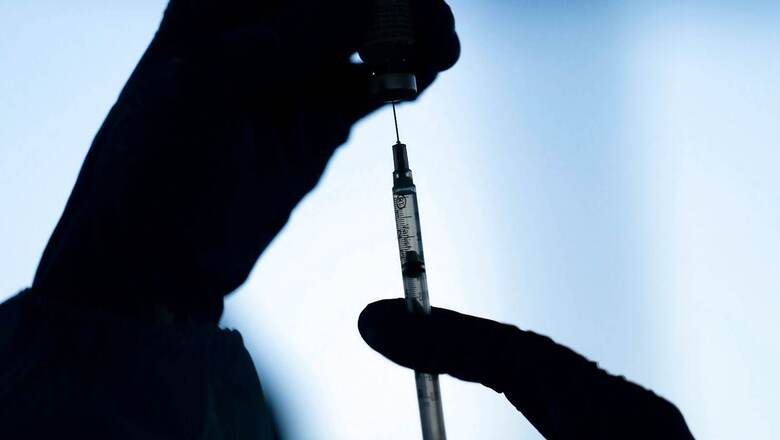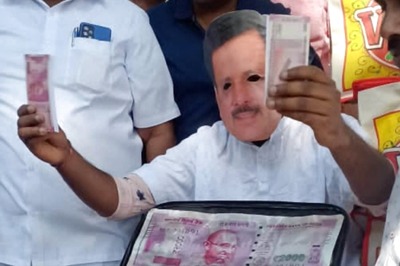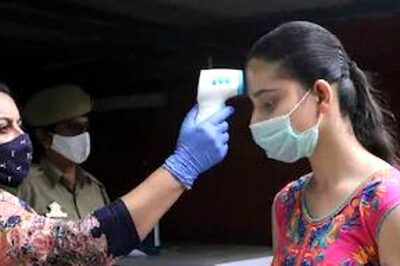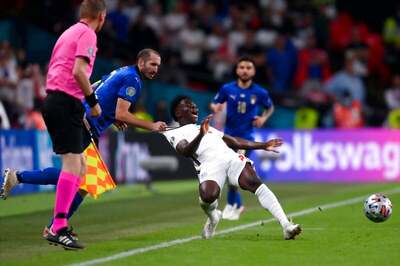
views
Some cancer patients are showing a rapid decline in Covid-19 vaccine effectiveness by three to six months compared to the general population, says a large-scale study carried out by the UK Coronavirus Cancer Evaluation Project, stressing on the importance of booster doses for those battling the malignant disease.
The findings come at a time when coronavirus disease cases are ebbing in several parts of the world, allowing people to resume normal outdoor activities. Yet, many people who are fighting cancer and are at a higher risk of severe Covid-19 remain in their homes due to the threat of infection, since the pandemic is still not over.
Published by the UK Coronavirus Cancer Evaluation Project in Lancet Oncology on Monday, the study is being touted as the world’s largest examination of the effect of Covid-19 vaccination on people with cancer. It was co-led by the Universities of Oxford, Birmingham and Southampton, and the government-led UK Health Security Agency (UKHSA).
The team analysed as many as 3.77 lakh active cancer patients aged over 18 years, including those who were recently diagnosed between January 2018 and April 2021. All the individuals had received two doses of Covid-19 vaccine and underwent a SARS-CoV-2 PCR test in England between December 2020 and October 2021.
The researchers then compared the number of breakthrough Covid infections and Covid-associated hospitalisations and deaths in this cohort of cancer patients to a study population without active or recent cancer. Breakthrough infections happen when a double-vaccinated individual gets infected with Covid.
Vaccines are effective
Despite many being immunocompromised due to their diagnoses and treatments, the team found that Covid-19 vaccination was effective in most cancer patients. The analysis showed that the overall vaccine effectiveness against infection in the general population after two doses of Covid-19 vaccine during the study period was 69.8%, whereas, in the cancer cohort, overall vaccine effectiveness was slightly lower at 65.5%. The protection was better against hospitalisation, and severe disease than chances of breakthrough infection.
However, this effectiveness was waning more quickly in cancer patients, the paper highlighted. “Vaccine effectiveness was reduced by nearly a third from 61.4% in the general population to 47.0% in the cancer cohort after three-six months following the second vaccine dose,” the team concluded.
“No study had ever looked at vaccine effectiveness and its waning in cancer patients at a population level. We have undertaken the largest real-world health system evaluation of Covid-19 in cancer patients globally,” said Dr Lennard Lee from the Department of Oncology at the University of Oxford who led the study based in the UK.
They also found that vaccines offered higher protection against Covid-associated hospitalisation (83.3%) than against breakthrough infections in the cancer cohort, but even this protection waned by three to six months following the second vaccine dose. The findings are especially more disconcerting for those who are battling blood cancers lymphoma, and leukaemia, as they were found to be losing vaccine effectiveness and immunity more quickly than other individuals with cancer, showed the analysis, carried as part of UK Coronavirus Cancer Evaluation Project, which brings the expertise of 69 cancer centres across the United Kingdom. Established in March 2020, the programme had earlier shown that chemotherapy could be delivered safely during the coronavirus pandemic.
The researchers also highlighted that the type of treatment people with cancer receive was also a critical factor in determining the immune response. The analysis showed that vaccine efficacy was lower in cancer patients that were treated in the last year with chemotherapy or radiotherapy, and the immunity also waned more — by three to six months— than in cancer patients that did not receive these treatments or were treated more than a year ago.
Booster shots critical
Peter Johnson, Professor of Medical Oncology at the University of Southampton, said the findings highlight the importance of vaccination booster programmes and rapid access to Covid-19 care for people undergoing cancer treatments.
“For our community, Covid-19 very much has not gone away and many people remain in their homes due to the threat,” said Helen Rowntree, Director of Research, Services and Engagement at Blood Cancer UK. “We know how important the vaccines are for people with blood cancer. This study importantly shows that immunity wanes faster in people with blood cancer, and we would encourage everyone with blood cancer to make sure they are getting these doses.”
The study was supported by the University of Oxford, National Institute of Health and Care Research Oxford Biomedical Research Centre, University of Southampton, University of Birmingham, UK Health Security Agency, and Blood Cancer UK.
Read all the Latest News here




















Comments
0 comment